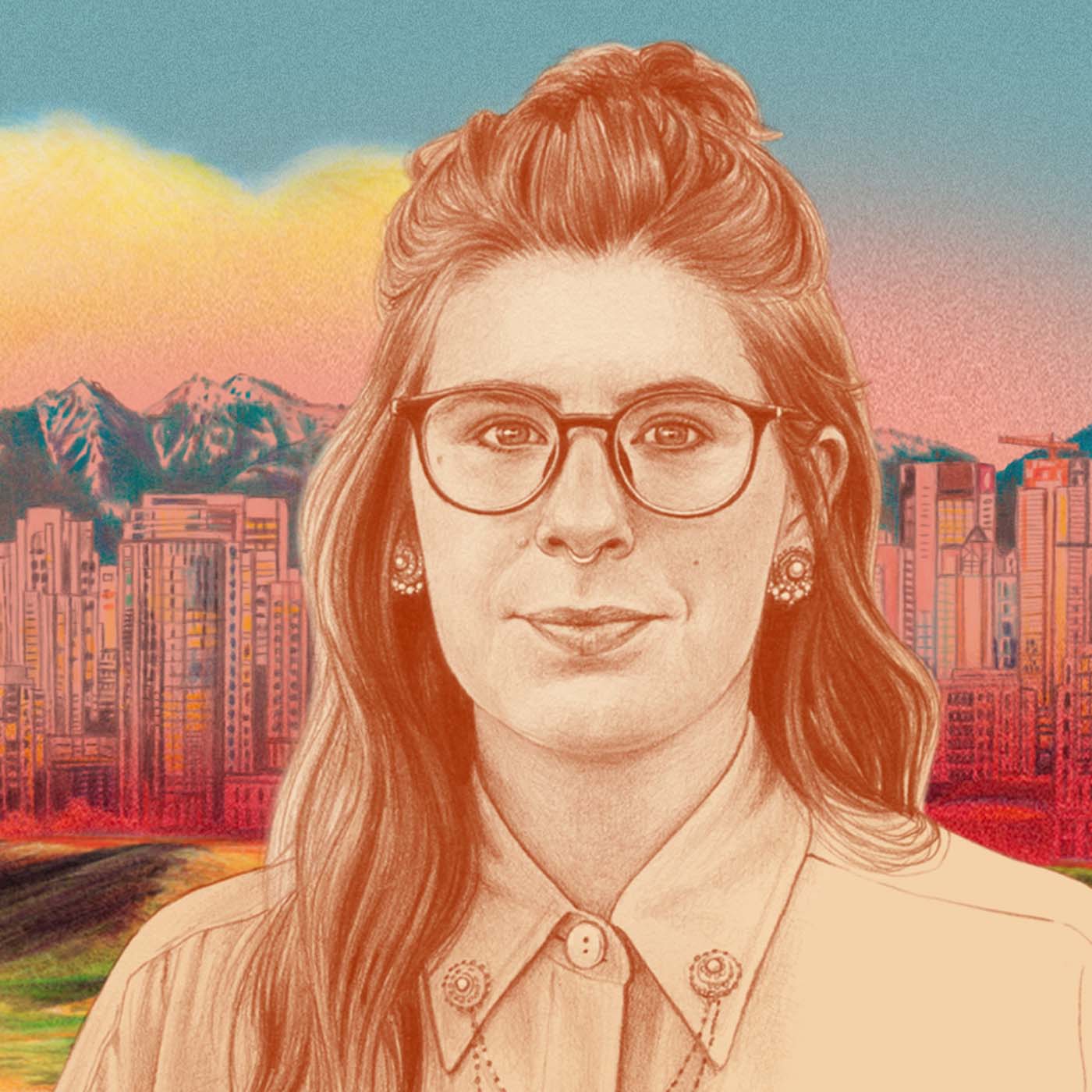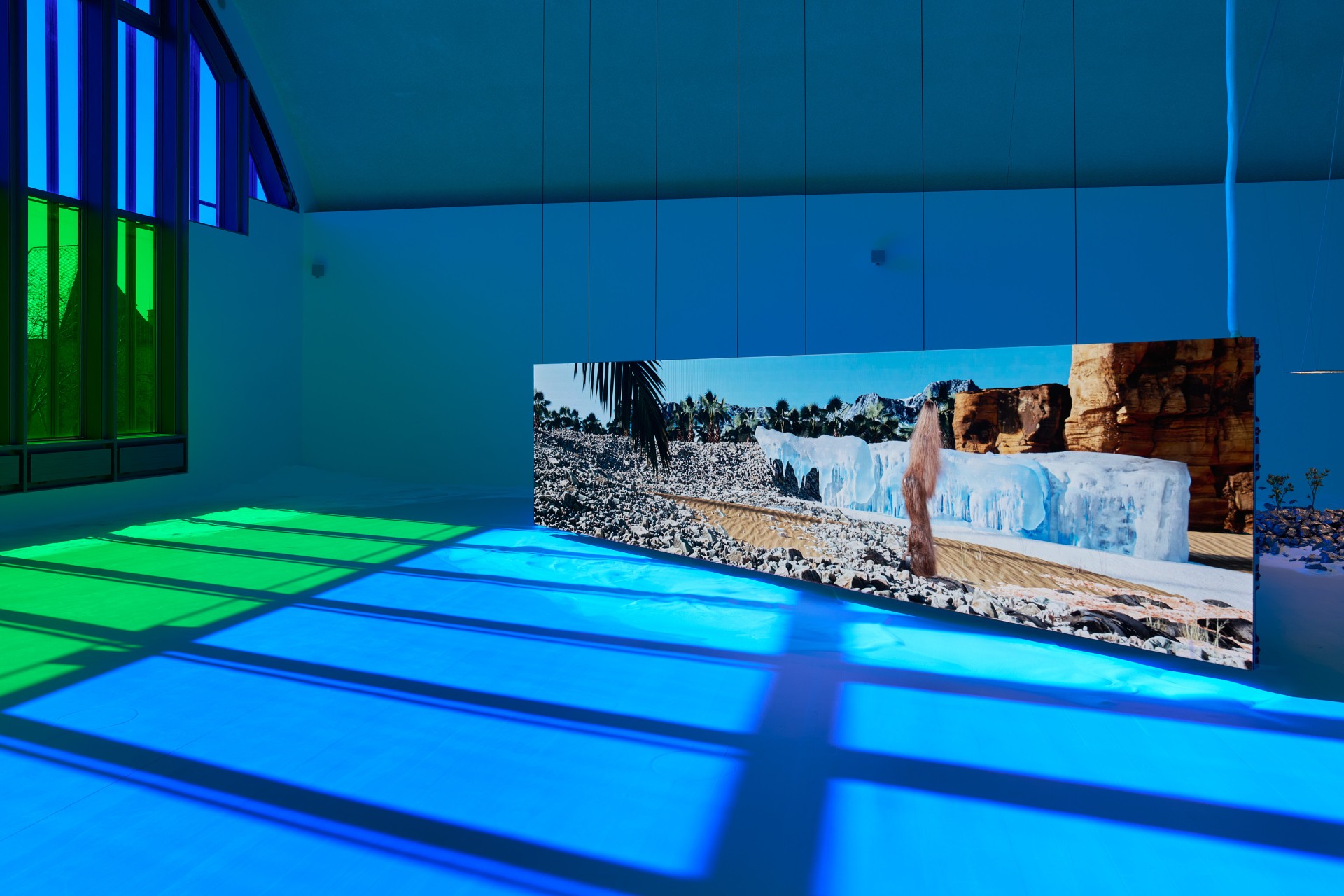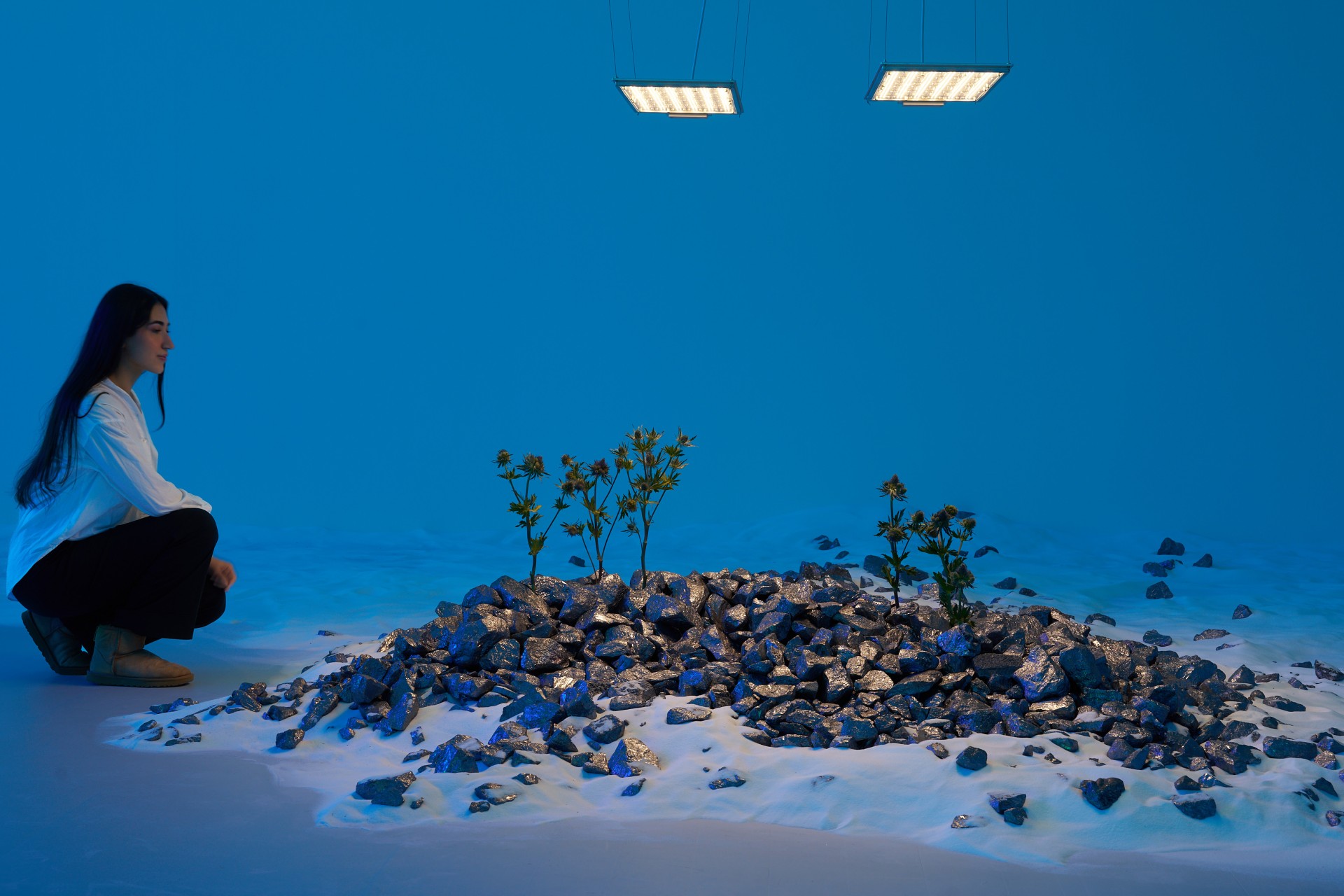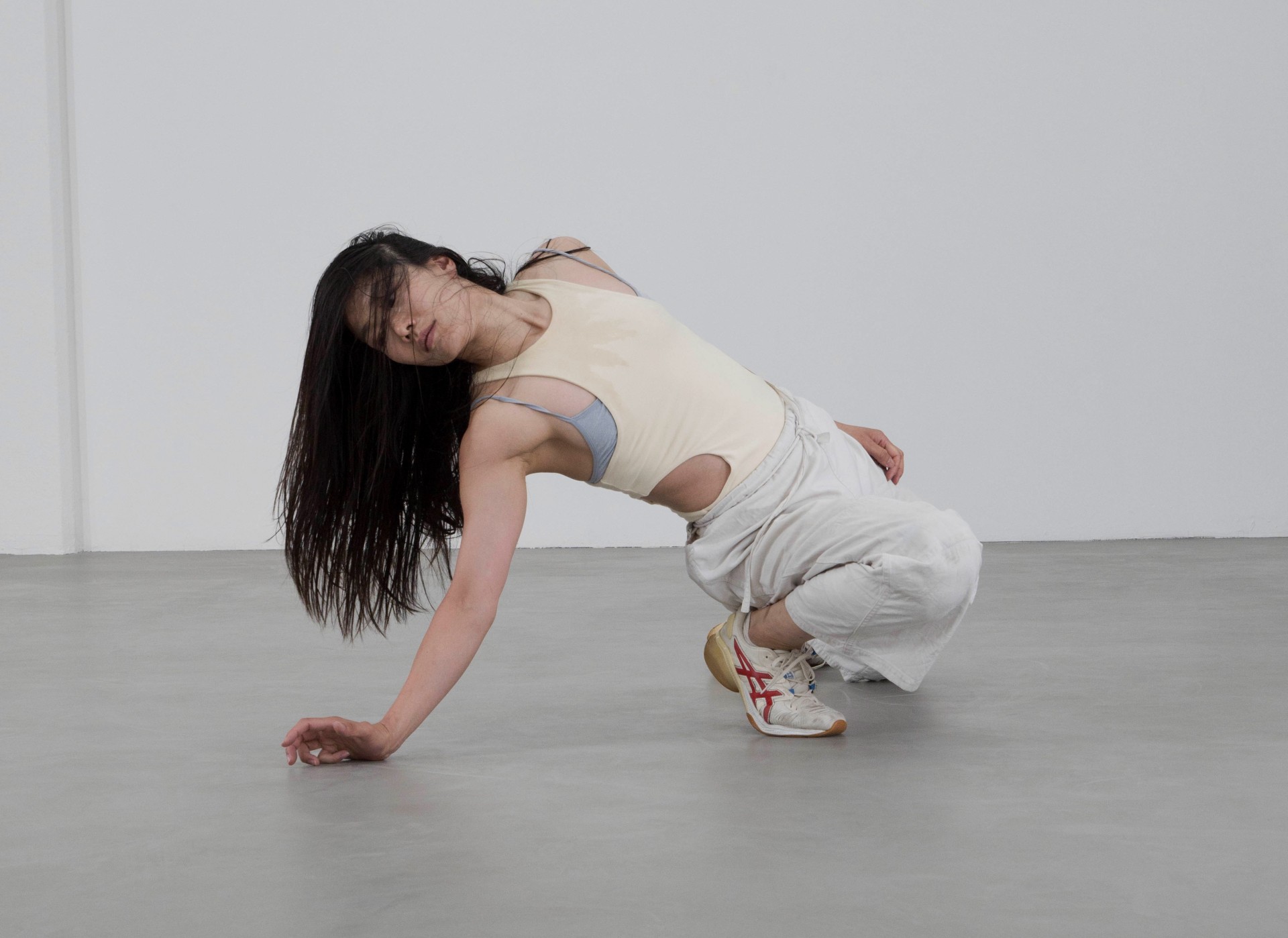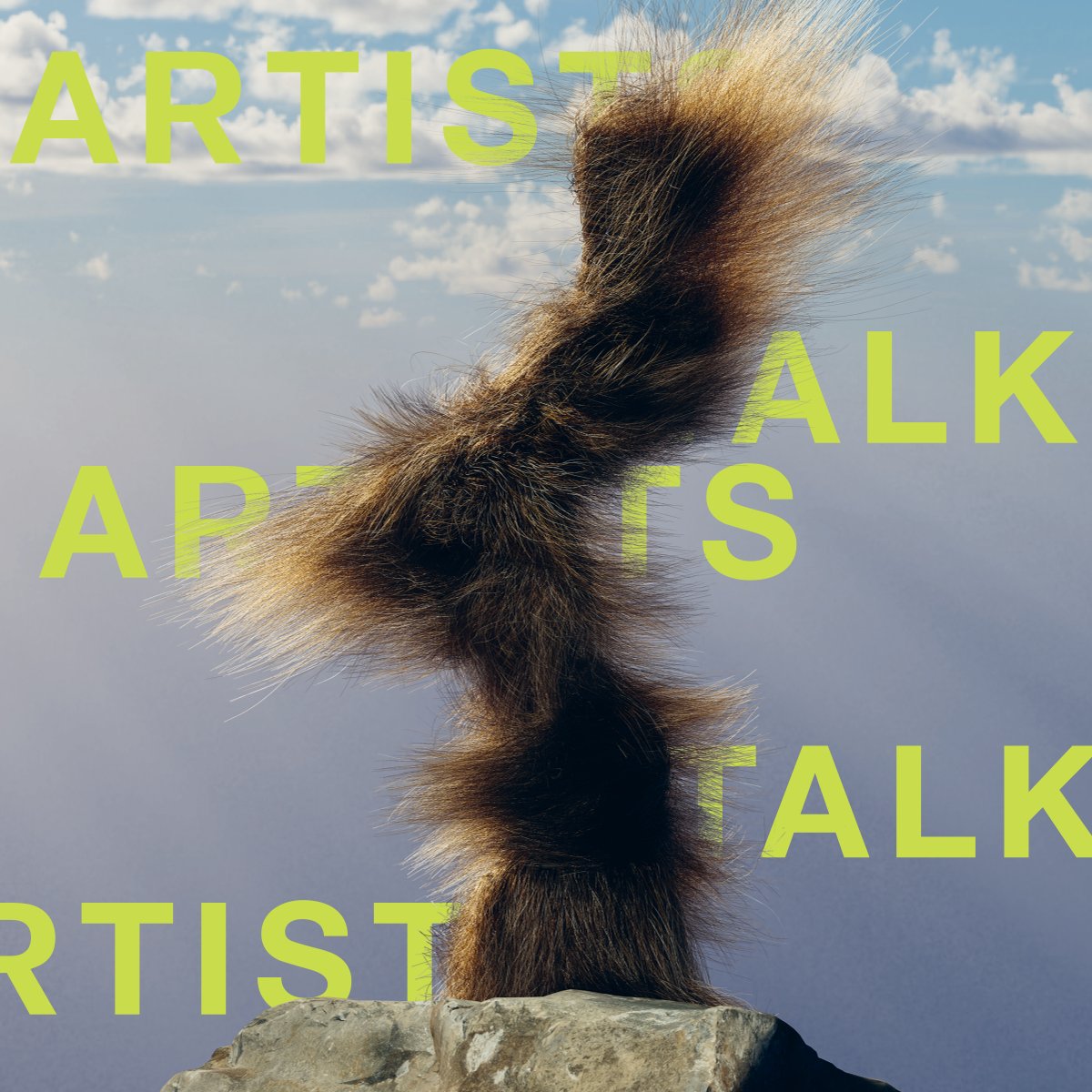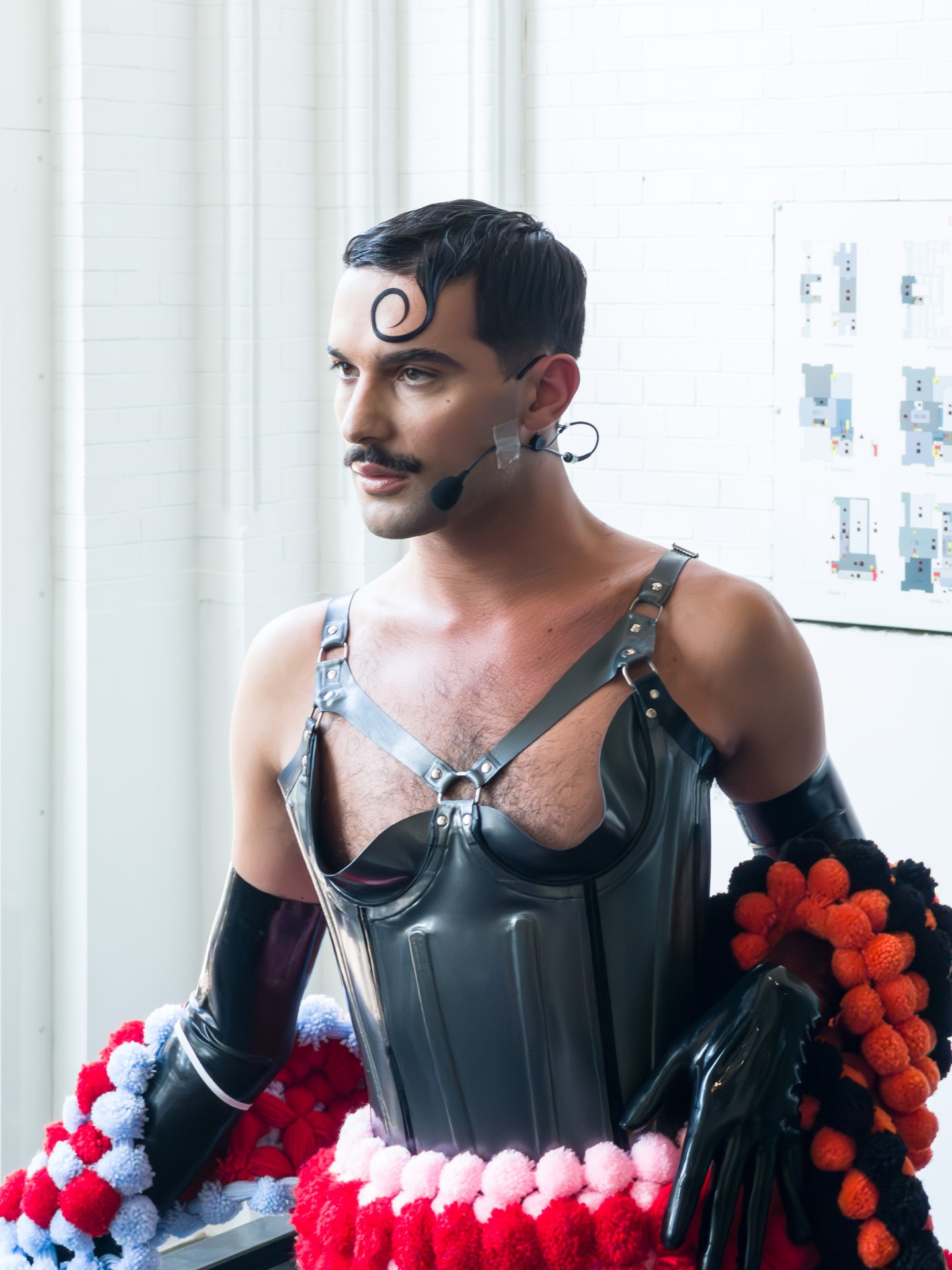Critical land.
Language as a tool for change
06/05/2021
35 min reading time
In the final episode of the podcast series featuring Indigenous perspectives on art, nature and decolonization, Cree writer Jessica Johns talks about dreams, eulogies, and Indigenous literature.
Transcript
Sylvia Cunningham: Welcome to “Critical land”. I’m your host, Sylvia Cunningham. This is the fourth and final episode of an English-language podcast from the SCHIRN debuting alongside its exhibition, Magnetic North: Imagining Canada in Painting 1910-1940. This podcast has been an opportunity to draw from some of the themes in “Magnetic North” to go beyond what is displayed on the gallery walls. Throughout this series, we’ve talked with Indigenous artists and scholars about the Group of Seven, decolonizing art, the meaning of land versus landscape, and what’s missing from conversations about climate change. In today’s episode, we’re taking a step away from the art to the literary world where we find a generation of writers tackling many of these same themes. In this final chapter of “Critical land”, you’ll hear from Cree writer Jessica Johns, a member of Sucker Creek First Nation in Treaty 8 territory in northern Alberta, Canada. She’s now based in Vancouver where she’s the managing editor of the feminist literary collective Room Magazine and co-organizer of the Indigenous Brilliance reading series. She’s also working on her debut novel, “Bad Cree.” Without further ado, here’s my conversation with Jessica Johns.
[Music interlude]
Before we get into your writing, because this is our final episode of “Critical land”, I want to circle back to our starting point which is the art exhibition happening at the Schirn, where the Group of Seven’s art is on display in Germany for the first time. And I’m curious, when we reached out for the interview and we mentioned the Group of Seven, did you have any association to their work?
Jessica Johns: No…
Sylvia Cunningham: Not at all?
Jessica Johns: Not at all.
Sylvia Cunningham: And was it ever part of school curriculum or something you saw on the walls or…?
Jessica Johns: When I say not at all, I mean no personal experience… I’m bigger in the literary world and not so much the art world, but they do intersect at some points, and so I have heard of it in passing through artist friends but otherwise no personal connection.
Sylvia Cunningham: In our first episode of “Critical land”, we talked with a Lakota-Scottish art professor named Carmen Robertson who was describing how in her experience growing up in a small town, she didn’t get much exposure to art at all, but she said she did know who the Group of Seven was, so I was wondering if you had an experience like that. But as I mentioned, we’ve really used this podcast as a chance to move away from what’s solely on the gallery walls. And in our most recent episode of the podcast, I talked with Jocelyn Joe-Strack, who is a member of the Champagne and Aishihik First Nation. And she now calls herself a “scientist in recovery” due in part to her experiences with academia, where in one example while she was pursuing her Ph.D., she was basically told to back up the research she was doing on land claims with literature by southern-based, non-Indigenous academics that she says with sorely underdeveloped. And she ultimately chose to leave a Ph.D. program after coming to an impasse about this. And so, I was wondering if you could also personally relate to this experience in academia.
Jessica Johns: Yeah, that’s unfortunately pretty common. It’s pretty common that historically in institutions, there has been a particular anthropological view on Indigenous peoples from the lens of white people or non-Indigenous people which is really difficult and problematic when as an Indigenous writer or artist, those are lived experiences and not an outsider looking in. Like very much in the world. So, I have had similar experiences in academia. So, I completed in my MFA at UBC for creative writing. Before that I did my undergraduate degree in literature. And both of those experiences had moments where I felt like I was being asked to consider myself outside of myself. Which is a very dissociative way of trying to understand your own identity. In particular this really came out in the MFA program where we were asked to practice storytelling and writing with very Eurocentric traditions and based on Eurocentric storytelling traditions. And that is really difficult when your storytelling traditions or what you think is valid as knowledge, as a way of communicating and telling stories is not validated and when you’re asked to cite and read and source from white academics or white writers that don’t have the same context and knowledge that you do, around again your own lived experiences, not some outsider looking in perspective.
Sylvia Cunningham: What did you find was the way that you navigated through that experience? Did you find you that at some points you were writing and creating work that you weren’t then necessarily proud of or that didn’t reflect who you are?
Jessica Johns: In some ways, I feel like it was a detriment to my own creative work. Especially at first when I was a new writer and MFA student – I’m just budding, I’m just learning and I’m taking everything everyone says to me very seriously, so when a person in power, a professor, an established writer tells me that however I’m doing something is wrong, that it won’t interest people, that it won’t sell…that was really damaging. And I look back on some work that I wrote that just doesn’t sound like me and not just professors as well in the MFA. You do workshops, so you get feedback from your cohort, your peers. And when those are predominantly non-Indigenous peers and predominantly white peers, you’re getting that feedback reinforced once again. And so that affected my writing in a lot of ways and it didn’t feel good, but then as I kind of became a little more entrenched in the writing world and how it works and the problems with it and really analyzing the ways white supremacy and colonialism have really disrupted and hurt Indigenous storytellers and writers for a really long time in Canada. Me pushing back on that became a source of creativity, so my Writers’ Trust award-winning short story, “Bad Cree,” which is now being made into a book, that was written sort of as a pushback against advice that I had received from a white professor not to do something in writing and it was not to write about dreams, which is in Cree culture a very significant storytelling device. It’s a significant and vital understanding of knowledge and ways of communicating with people, like dreams are really important. And so, to be told by somebody in a group of people, “Don’t ever write about you dreams, people won’t care, you’ll lose your audience,” that was really enraging for me. And so, I wrote that piece as like a – you know what – I’m going to show you.
Sylvia Cunningham: And you did.
Jessica Johns: Yeah, I did! But that being said, that shouldn’t happen…this labor, this sort of quote unquote “resilience” narrative should be forced on Indigenous people to overcome and fight back and respond with this award-winning piece, and therefore I won type thing, that shouldn’t have happened in the first place and instead years of mentorship and support in the ways of my writing from the very start would have been far more beneficial than you know what ended up happening in my academic career.
Sylvia Cunningham: The story you mentioned, “Bad Cree,” this award-winning story that started out published as a short story in Grain Magazine and that you’re now transforming it into a full novel, what is the process of fleshing out or stretching out the story? I don’t even know where you begin – is it that the novel kind of continues where the short story left off, or are you actually enlarging or expanding on sections where you had cut previously?
Jessica Johns: That’s a really great question, there have been so many iterations and changes to this piece to transform it into a novel and it’s still in very early drafts, so it’s going to change even more still. But my initial decision to expand it came from not being done with it. I kept thinking about the story. I kept thinking about other things that I wanted to do with it. The character stayed with me. I kept thinking about other things she would do and other dream experiences she would have, so I started expanding on these ideas I was having and then it was kind of both and particularly when I showed it to my agent and when we started the editorial process, then it became a process of sort of blowing up areas, so it was like expanding on the story, and then honing in on specific parts of the story and enlarging those and blowing them up and digging deeper into character development, into scene and then after doing all of that, all of a sudden after doing all of that I had you know 200 pages…
Sylvia Cunningham: Oh my gosh…
Jessica Johns: I know. And I was just like, how did that even happen and again, it’s still changing, and it’s still morphing, but it felt kind of organic in that way.
Sylvia Cunningham: So, do you see it as a companion piece or do you almost see it as a new work that takes on life of its own? Because with that short story, you have this beginning and middle and end or at least you know where you wrapped it, but maybe that place where you wrapped it isn’t going to be the same in the novel. Are you seeing them as two kind of separate entities?
Jessica Johns: There’s so much of the original piece in the novel, but it’s completely different in where it…the beginning, middle and end is so different, so I definitely see it as its own thing at this point, but you can 100 percent see its…like this was the seed and this is the tree.
Sylvia Cunningham: There’s a short excerpt I’d like to read from “Bad Cree” … So, you write: “It’s been two years since I left High Prairie, my home, the town where I was born and raised with my two siblings. When I moved, Mom came out to the back of the house to find me putting soil into a bottle. She just shook her head and said that it was my body that carried home, not the land. It’s a Cree mom’s worst nightmare to have her family split apart. Now here I am, a thousand miles away in Vancouver. A bottle of prairie soil on my nightstand.” That sentence, “it was my body that carried home, not the land.” Do you personally relate to this sentiment too?
Jessica Johns: Yeah, I’ve actually changed that line, and I think about it a lot though because at the time I was reading a lot of work by Quill Christie-Peters who is an Anishinaabe visual artist and she writes a lot about how because a lot of Indigenous people are displaced from their homelands, you know, reconnection to home and reconnection to homeland can be pretty fraught. And one of the ways in which she, you know, talks about coming back home and feeling at home is how, you know, home lives with us within our bodies. It’s in our blood, it’s in our marrow. And I was thinking about this a lot and that really resonated with me when I was writing this. And I’ve changed that line now to read: “It’s our body that carries home, just as much as the land.” Instead of “not the land.” Because no matter where you are, whether it’s your homeland or not, land is so very much…is such an extension of our bodies and ourselves, and whether that’s like if you’re in a city…there might be concrete under your feet, but there’s land, you’re on territory that’s like I’m here on unceded territory, that’s not my territory that I have to develop and think deeply about my relationship with this place. So, I think both those things are really important, rather than one or the other which I think the first iteration of that sort of insinuated, whereas I think both body and land are important aspects of home.
Sylvia Cunningham: I want to pick up on that, what you just said with living on unceded territory. The protagonist says that she moves to “Vancouver.” But outside of this story, the way that you identify where you live and work is “on the traditional territory of the Musqueam, Squamish, and Tsleil-Waututh peoples.” For those who aren’t familiar with this distinction, can you describe the importance of this acknowledgment and perhaps also why in your story, you chose to describe the location as Vancouver?
Jessica Johns: I think that I wrote Vancouver because that’s a place people would be familiar with when they read a story and know where that is. However, I really like the idea of disrupting what people think they know of a place when the truth of that is this is unceded territories, which means that the people, the original stewards of this land, Musqueam people, Squamish people, and Tsleil-Waututh peoples. Vancouver is the colonized city of lands that were once theirs – and still are theirs. And to be unceded means that they’d never agreed on a treaty with any of the Europeans and settlers, so it was just literally no discussions, they just took over and occupied the land that was not theirs. So that is sort of what that distinction is.
Sylvia Cunningham: I want to ask you about how you approach language…because I came across an interview you did back in 2017 in PRISM international, where you were previously the poetry editor. And at that time, you interviewed the award-winning writer from the Driftpile Cree Nation, Billy-Ray Belcourt. His debut book of poems, “The Wound is a World” had just come out. And one of the topics you covered is language in writing. And you were talking with your co-editor about when she uses Cree words, she’d bracket them in the phonetic spelling, Billy would use and re-define them as he went. So, at the time, you said you translate Cree words when you use them. Have your decisions around language or your philosophy on it changed even in these past three, four years?
Jessica Johns: Yeah, significantly…thanks for reminding me of that! I loved talking with Billy and Selina. And I love talking about language with people, particularly Indigenous people, who are language or maybe not language learners, and just talking about their relationship to language. Again, something that’s very fraught and it has changed quite a bit. Because I don’t do that anymore, I don’t translate Cree words in my writing anymore and a big reason for this is due to…there’s a writer named Leanne Simpson, who is another Anishinaabe writer and academic and someone I admire and follow very much, so I’m emanating her a little bit and her wisdom in this, because she’s talked about this quite a bit and in her work, she used to translate stuff into English and in recent works she doesn’t and her reasoning for this is that you know in the age of information and information at our fingertips, information is pretty accessible these days, so if people want to look up what this word means, they can. And again, it’s kind of like this is work you can do as the reader and for a Cree person reading that, they’re going to read it and take something completely different from that reading than a non-Cree or a non-Cree speaking person would. And I like that, I like that there are layers to that and also there’s just…like we do it all the time. If we come across an English word we don’ know, we either put it in context or we’ll look it up, because we’re like “I have no idea what that word means.” And it’s just like why do we normalize that for English and quote unquote “non-foreign” …which is so strange that Cree would be considered “foreign” in Canada, so that’s a practice I’ve started doing more recently, which is not translating the language when I use it and just allowing it to exist on its own.
Sylvia Cunningham: One of the aspects I really love about your writing is how much humor you have even when you’re talking about darker topics, and I think your story “Good Bones” which was published in March 2018 in Cosmonauts Avenue encapsulates that even with the opening line, which I’ll read: “When my sister finds her eulogy, she’s really not impressed. And she should have been quite happy, I think, considering I managed to come up with so many nice things to say about her.” And without giving too much away, we learn that this character spends a lot of time imagining the kinds of ways people will die – and really not in a morbid way, or at least the way I took it, to me it was more in a prepared-for-anything way. And I was wondering, do you think that’s something of a defense mechanism, as if the grief will not be as intense if you know you’re literally prepared for any possible circumstance?
Jessica Johns: That’s a good question…I don’t know what that is. One of my friends and really, really brilliant writers, her name is Samantha Nock and she’s a Métis writer. She has a line in a poem, and it’s something like, this isn’t it exactly, but it’s something like…Kokum tells me to tell my saddest story and follow it up with my biggest joke. And there’s just something about…and you find this a lot, or I’ve found it a lot with Indigenous people, and I don’t want to talk about us as a monolith, because we’re all very different, there’s lots of different cultures and nations. But…but. I’ve found it to the case that Indigenous people, pretty generally, are really, really funny. Just really funny people and I think that just exists on itself. Just…we’ve got humor in our bones. And another part of it, this idea of pairing it with maybe darker moments is that grief sort of always lives with us, you know. And there’s intergenerational trauma that we’re dealing with, there’s the constant trauma of everyday living in a colonial world that is still trying to eradicate us and our people and our rights. And that’s an everyday trauma we have to deal with and if we focus on that all the time, I think that’s a really quick way to ensure that that destruction happens, so instead we joke about it. And I don’t know if defense mechanism is the word, but it’s somewhere around there.
Sylvia Cunningham: And in this story “Good Bones,” while the character is imagining how people she loves or knows will die, she’s also drafting their eulogies. And I was wondering while you were writing this piece of fiction, if you were thinking about your own eulogy and what people would say. Kind of a darker question…
Jessica Johns: I love that question, so don’t worry at all…you know I have not thought, even while I was writing that, about my own death and eulogy and things like that, but I was in a period of thinking quite heavily about people in my life dying and what I would say at their funerals which is a really weird thing to do. And sort of, that’s the premise of the story, getting out this weird compulsion. But it was also at a time in my life when I was dealing with grief, I had just lost a couple of friends, so I don’t think yeah…it was a strange thing to be contemplating death in such an intense way at that time. But I probably should have going to therapy or something…I wrote it down instead.
Sylvia Cunningham: Yeah that’s funny that you say that because there is the therapist in the story and another line I jotted down was: “’Maybe you should go back to see Dr. Boxma,’ Mom suggests. Dr. Boxma was a wonderful woman who really tried her best, but you just can’t admit weird things to a person with a perfectly symmetrical face.”
Jessica Johns: I mean that’s just true! If someone is too perfect, it’s really hard to tell them about abnormal things. You know?
Sylvia Cunningham: Absolutely…because you were writing this story at a time where you describe there were these parallels in your life, did you find that because as you mentioned you hadn’t been talking to a therapist, did you find that was a constructive way to be prepared for these circumstances, to be imagining things and kind of working through these scenarios, or was it just a way you were processing and you can’t say if it really helped or didn’t help in the end?
Jessica Johns: Hmm…I don’t know if it helped or didn’t help in the end. At that time too I was really just starting to…that was one of the very first things I published and I was really just starting to write I feel like in a more deliberate way, deliberate in that I was trying to write as a writer and not just as a “secret writer” as I was kind of doing before, just writing for myself.
Sylvia Cunningham: Wait, what do you mean by that, a secret writer?
Jessica Johns: So that piece was something I was writing and thinking, I’m going to write this to send out to try to publish it somewhere. A “secret writer” would be like before that where I was writing and I was like, I’m not showing this to anybody, this isn’t for anybody else, this is just for me and my own purposes. So, to anybody else, I wouldn’t be a writer because no one knew I was doing the work. So I don’t know because I was processing a lot of feelings and emotions I guess through that piece but I was also very aware that I was writing it to go out in the world, I was writing it to be published, so I was careful I guess not to be too raw in that I still really imbued it with a lot of fantastical elements to put a bit of a shield between the work and my own processing and feelings.
Sylvia Cunningham: Making this transition from “secret writer” to published writer, do you find that you started to have a reader in mind that you were imagining reading your work?
Jessica Johns: Yes, I feel like I’m writing to myself, like I’m writing stories that me of…not even years ago, like even me just now would really want to read. Because I really love fantasy and I love magical realism, and I love really weird stories. I love horror, grotesque elements, and so I read a lot of that and I’d love to see Cree people in these stories and so I feel like when I’m writing, I’m writing books that I would really like. I’m trying to write things that if I were to not know myself and pick up this book, I would be excited about it.
Sylvia Cunningham: In an article that appeared in the Toronto Star, your agent Stephanie Sinclair said about your work… “In many ways (Johns’) sort of normalizing and humanizing an urban Indigenous experience in a way that I think challenges how people think about stereotypical Indigenous people. I think that she’s also offering insight and perspective into the joy that exists within many, many Indigenous families we don’t hear enough about.” Do you agree with that assessment? Is that a goal, or simply the effect?
Jessica Johns: I think that is an effect because I am not striving out to represent an urban Indigenous experience you know versus any other experience especially because there are so many different kinds of Indigenous experiences, but I think what she’s getting at is exactly that, that there are so many different kinds of Indigenous experiences and one where, you know, an Indigenous millennial living in the city that’s an experience and writing about Indigeneity, or just being an Indigenous writer, writing about stuff, just doesn’t have to be any particular way because of expectation and outside people, and I think what Stephanie appreciates about my writing is I’m just trying to be genuine. I’m trying to write from an experience I know and not one that I don’t. And so that means that an Indigenous person who’s fucking up a lot of the time, when she’s trying like you know figure out how to smudge because that’s a traditional teaching that she wasn’t actually taught when she was growing up even though she grew up in her community. You know, she stumbles through learning stuff and stumbles through connecting back with her family, because things have happened that have made those connections a little fraught and severed, but her community and family is still so significantly important. So, I think that even though that’s certainly not a goal, writing from an experience that I know, rather than pretend at something I don’t has resonated.
Sylvia Cunningham: Do you have a typical writing routine?
Jessica Johns: Yeah, I’m not a morning writer, I tried to be. I tried to be that person who was like I’m going to get up early, get a coffee and write. But it doesn’t work, my brain doesn’t work like that. And so then when I started writing the book, and significantly when I’ve been editing, my routine is I can only work on it for 2-3 hours max because it’s a lot and it’s exhausting, it takes a lot of mental energy, so I will do that in the afternoon, and then work on other stuff after, or like light things afterwards. But I do it every day. Because once I get out of a rhythm where there are so many things I have to keep in mind, once I’m start doing it and I’m in it and I’m editing two chapters at a time or whatever I’m done, I’m doing it every single day and if I take a break, then it’s like a wheel has come off of a car and anything can happen at that…so I keep within that routine, and I also realized that in terms of writing, I picked up this routine by accident but I got into a routine of reading every night and right after I’d finished reading, I would put my book away and then I would write on my phone for I don’t know, half hour, an hour, because reading is such a huge – it really helps me write. And so, I’m like laying it bed, not on my computer, not anything writerly, I’m just in my notes app and I’m just like writing, and then I go to bed. And I was doing that, a lot of my novel was written in my notes app.
Sylvia Cunningham: Do you find that because you’re reading different authors right before bed and right before writing, that you’ll look back at sections you wrote and think “oh OK, that was definitely following reading this or that author.”
Jessica Johns: Definitely. Oh yeah. I was reading Eden Robinson, the last “Trickster” book in her series. And it’s really grotesque, there’s lots of body horrors. And yeah, there were some scenes I was re-reading that I wrote where I was like, “Wow, I was deep in the Eden Robinson spiral there.”
Sylvia Cunningham: And aside from writing your debut novel, you are also the managing editor of Room Magazine, which is Canada’s oldest feminist literary journal. With that what I just said, being its oldest feminist literary journal, that kind of legacy already intact, what have been your goals since taking over?
Jessica Johns: There were a couple of things that I really wanted to do when I took over. The managing editor before me, Chelene Knight, she was a really wonderful mentor to me. And I really wanted to uphold a legacy that had already started. She already began it. I wasn’t doing anything new. But she had implemented and tried to ensure that the organization of room, so it’s like a team of collective members, of volunteers, of staff. Everything was centered on relationships – relationships with each other, relationships with our writers, with our vendors, with organizations that we partner with to do projects. And these were just really…the literary world can be really cold, especially you know these organizations built on, you know capitalism is the running machine that we’re all just cogs in, you know I think she wanted Room to embody something different and move in a different way. So, in that vein, I really wanted to do a couple of things. So, I had kind of started at Room with the Indigenous Brilliance reading series, and I really wanted to incorporate it more seriously into the Room dynamic, because at the time two years, it was still sort of an offset under the umbrella Room. So, it was a reading series that occurred, but I really wanted to encourage more projects that centered Indigenous voices, that centered Black voices, and so since then, that has been one of the things I feel we’ve done to a really positive degree. We have so many more really wonderful projects with Indigenous Brilliance that are more intentionally weaved into the fabric of Room instead of an offshoot. And then also reevaluating our systems because every single literary magazine is inherently built on colonial system, in that everything from our style guide to the language we use, English, is a colonial language. And so I really wanted to question everything we’re doing and disrupt them, and think how can we update these systems, these policies, these guides, these resources, to incorporate anti-oppression, anti-oppressive practices and so it’s a lot of backend work, but it’s structural and I feel like as editors, learning from resources that center anti-oppressive practices rather than just grammar, is just a really significant act in editing and in magazine publishing. And yeah, so trying to do those things has been pretty significant amount of work and learning and unlearning on my part.
Sylvia Cunningham: And when you’re deconstructing these style guides, are new style guides taking their place, and what are then the new rules or are there new rules?
Jessica Johns: No, no, there are still rules. But they’re more like…instead of straightforward, this is what you do, and this is what you don’t do…it’s more a way to approach editing, so the style guide still exists, it’s just different. For example, one of the things was pretty across style guides across the board in style guides was that you had to italicize non-English words, and so a disruption in that was you do not have to do this, it’s up to the writer if they would like to. And incorporating into the style guide what oppression looks like in writing, so being able to identify when oppressive language is being used, so some metaphors and things like that can be quite racist or transphobic, or misogynist. It’s language we take for granted or we’re just not aware of it. It’s been so engrained in our language, in our lexicon that we don’t realize it. So, people will put that into writing and then it comes to us, and instead of just having this thing, like “here’s how you identify a misplaced modifier,” this is a style guide that’s like, “here’s how you identify potentially racist language” or this problematic thing. And here’s how you could approach changing that or here’s how you could approach that conversation with the writer who probably didn’t intentionally do that, and so you have that conversation. So, it’s more like that. And it doesn’t have all the answers because there’s no way to identify everything that could possibly come up. It’s more so a way of going about editing. It’s a shift about how we have to look at editing I guess. There’s an Indigenous style guide written by the late Gregory Younging and I think this practice is really modeled after that book where he says right from the beginning, like this isn’t a how to, this isn’t going to give you all your answers, it’s instead going to give you a new way to approach these things, a new way of questioning, a new way of thinking about new relationship to language and these kinds of things. It’s an opening up. So, he style guide has changed in order to do that.
Sylvia Cunningham: You mentioned you’re the co-curator of the Indigenous Brilliance reading series in Vancouver, which highlights the works of Indigenous women, Two Spirit and queer writers. And I’m imagining that you’re familiar with many of these writers already, but you’re probably learning about new writers all the time as well. And so was wondering if you could leave us with some story or book recommendations or people that we should also be checking out.
Jessica Johns: Yeah absolutely, I love giving recommendations, especially from Indigenous writers and queer Indigenous writers. So jaye simpson’s book, “it was never going to be okay” came out last year and it’s absolutely brilliant. It’s a poetry collection. They’re a member of the Indigenous Brilliance team and an absolutely fantastic human being. Selina Boan just published a poetry book collection called “Undoing Hours.” Molly Cross-Blanchard just published a poetry collection called “Exhibitionist.” Well of course everyone knows and love Billy-Ray Belcourt, and his newest non-fiction “A History of My Brief Body,” up for numerous awards and always brilliant. I had mentioned Eden Robinson already and the “Trickster series.” Very formative series for me actually and my work and her mentorship has been really influential as well.
Sylvia Cunningham: That was Jessica Johns, the managing editor of Room Magazine whose debut novel “Bad Cree” is scheduled to be published by HarperCollins Canada in spring 2023. Our music is from Blue Dot Sessions. A big thank you to all of my interview guests for taking the time to speak with me over this series – Carmen Robertson, Martina Weinhart, Caroline Monnet, Jocelyn Joe-Strack and Jessica Johns. Thank you also to my friend and artist Miranda Holmes for being a sounding board and allowing me to pick her brain before the very first episode of “Critical land”. The “Magnetic North” exhibition at the Schirn Kunsthalle Frankfurt has been extended until August 29th, so you still have some time to see what is actually on the gallery walls, including works by Caroline Monnet, Lisa Jackson, and a selection of 90 paintings and 40 sketches from the Group of Seven, on display in Germany for the first time.
Subscribe to SCHIRN podcasts on:
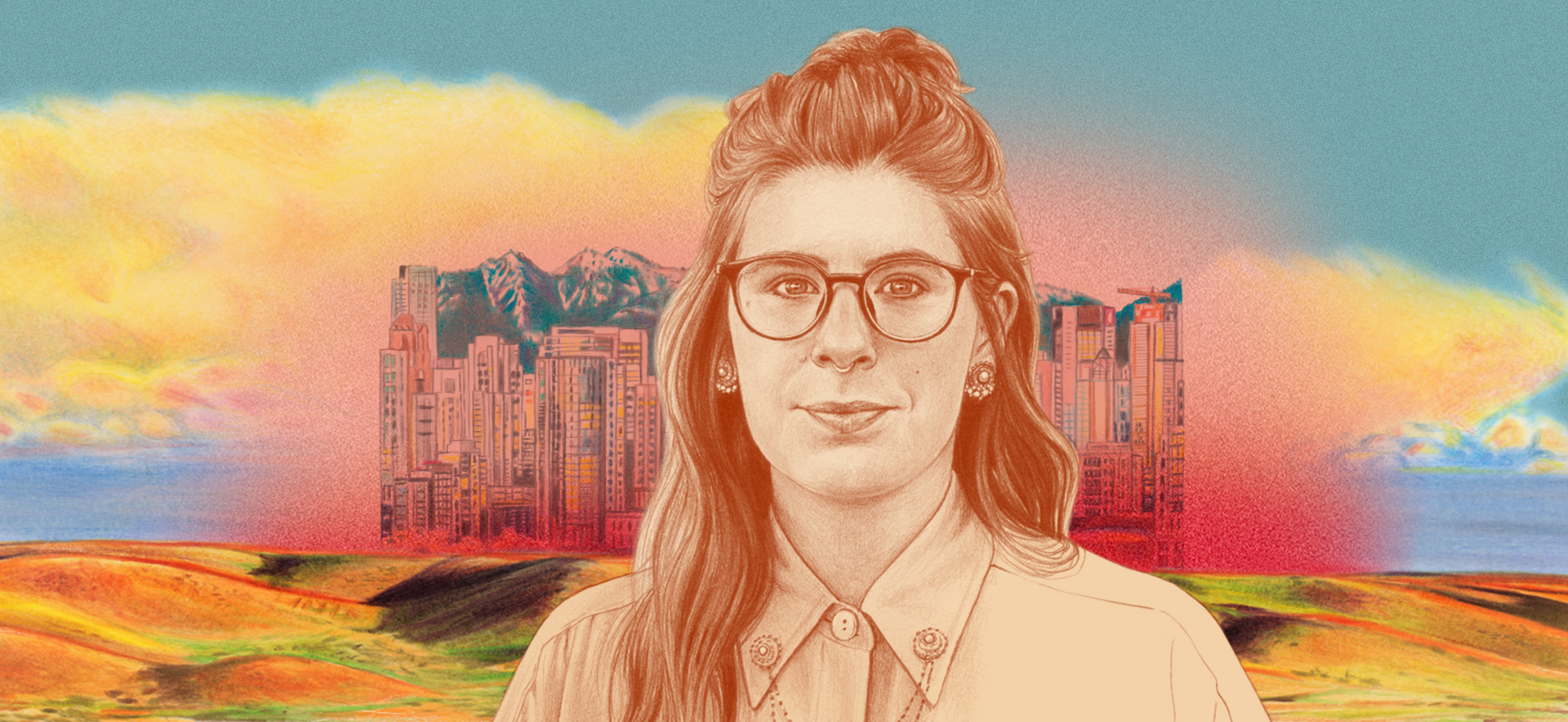
You may also like
Lorem ipsum dolor sit amet, consetetur sadipscing elitr, sed diam nonumy eirmod tempor invidunt.
